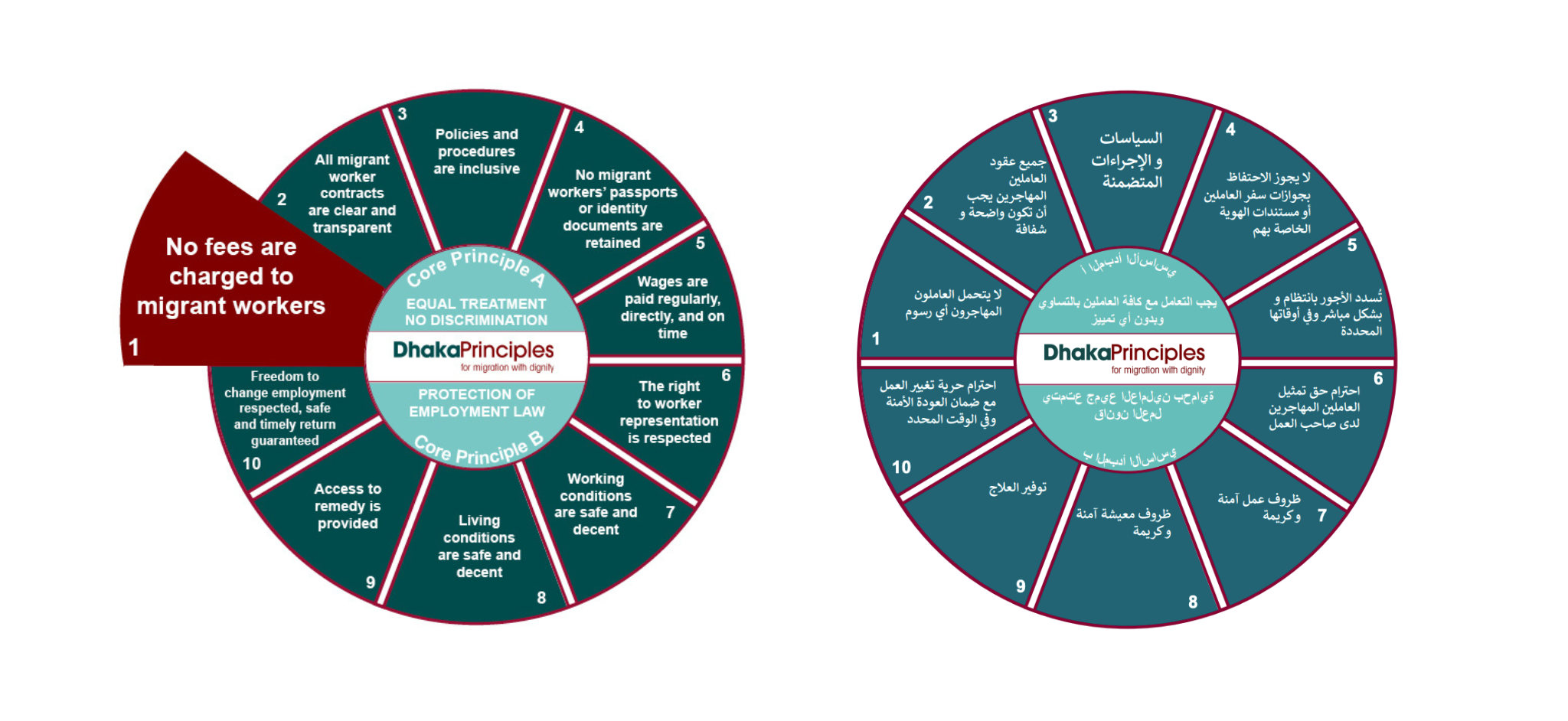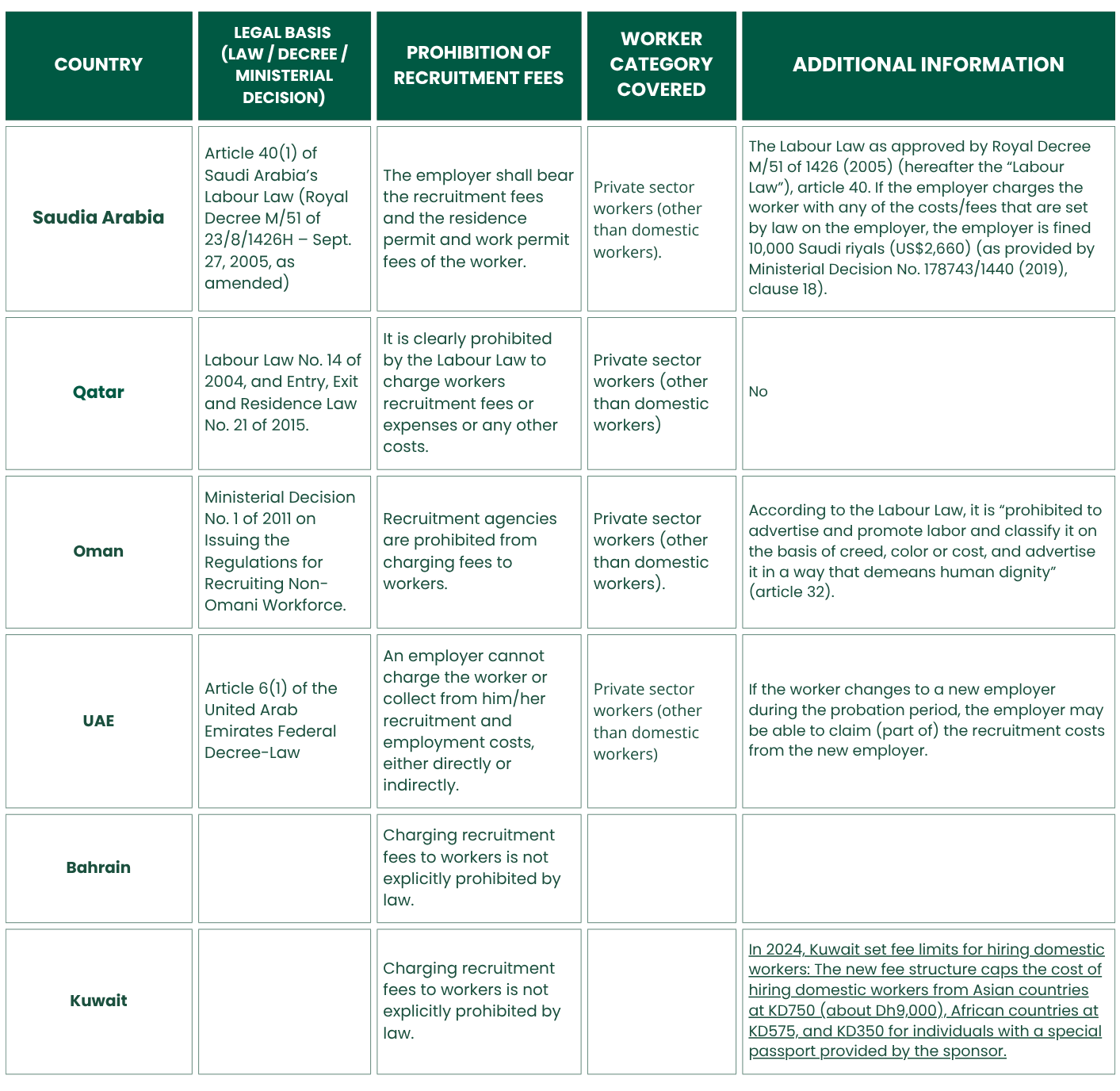Understanding GCC Labour Laws. Part two: Prohibition of Recruitment Fees
This explainer provides a legal and regulatory snapshot of how Gulf countries address recruitment fees. For a deeper exploration of responsible recruitment risks, business responsibilities, and reform strategies, see our companion briefing: “Understanding Responsible Recruitment in the GCC Context.”
Background on Recruitment Fees
According to the International Labour Organization (ILO):
“Recruitment fees or related costs refer to any fees or costs incurred in the recruitment process in order for workers to secure employment or placement, regardless of the manner, timing or location of their imposition or collection.”
This encompasses any charge, monetary or in-kind, direct or indirect imposed on workers during hiring. These may take the form of money, property, wage deductions, kickbacks, or bribes, and can be collected by any party, whether an employer, labour recruiter, agent, or other intermediary.
The ILO definition also includes both visible and hidden charges—including illicit or informal fees, such as bribes or extortionate payments—as part of prohibited recruitment fees.
In addition to general recruitment fees, the ILO outlines a detailed list of related costs that should not be borne by workers. These costs are often imposed during the recruitment process to access employment or placement and may be initiated by an employer, labour recruiter, or an agent acting on their behalf. These include:
Medical costs: Payments for medical examinations, tests, or vaccinations
Insurance costs: Charges to insure the lives, health, and safety of workers, including enrolment in migrant welfare funds
Skills and qualification tests: Costs to verify workers’ language proficiency and level of skills or qualifications, as well as for location-specific credentialing, certification, or licensing
Training and orientation: Expenses for required training, including on-site job orientation and pre-departure or post-arrival orientation of newly recruited workers
Equipment costs: Payments for tools, uniforms, safety gear, and other equipment needed to perform assigned work safely and effectively
Travel and lodging costs: Expenses incurred for travel, lodging, and subsistence within or across national borders during the recruitment process—including for training, interviews, consular appointments, relocation, and return or repatriation
Administrative costs: Application and service fees required solely to complete the recruitment process. These may include fees for representation and services aimed at preparing, obtaining, or legalizing workers’ employment contracts, identity documents, passports, visas, background checks, security and exit clearances, banking services, and work or residence permits.
The Dhaka Principles for Migration with Dignity, developed by the Institute for Human Rights and Business (IHRB), provide a human rights-based framework to protect migrant workers throughout the entire labour migration cycle—from recruitment, to employment abroad, to safe return home. They emphasize that the root of many abuses begins at the point of recruitment, particularly when workers are forced to pay fees to secure jobs.
Within this framework, Principle 1, the Employer Pays Principle, was originally coined by the IHRB Leadership Group for Responsible Recruitment to describe a model in which workers do not pay any fees, costs, or charges for recruitment. It clearly states that no worker should pay for a job; the full cost of recruitment must be borne by the employer. This voluntary principle has been widely adopted by companies, governments, and international organizations across sectors.

Summary of Prohibition of Recruitment Fees in the GCC
